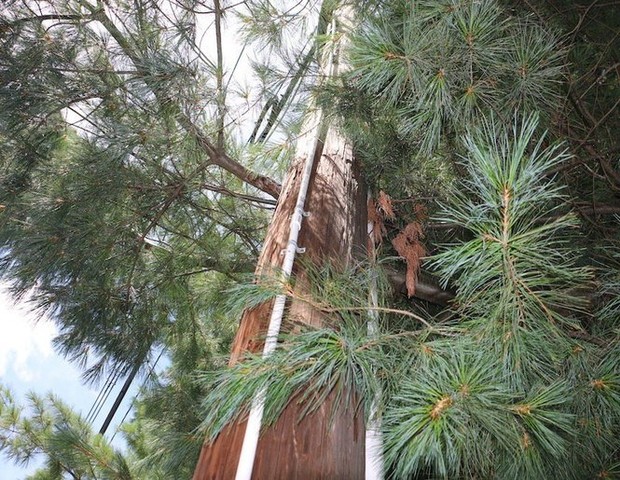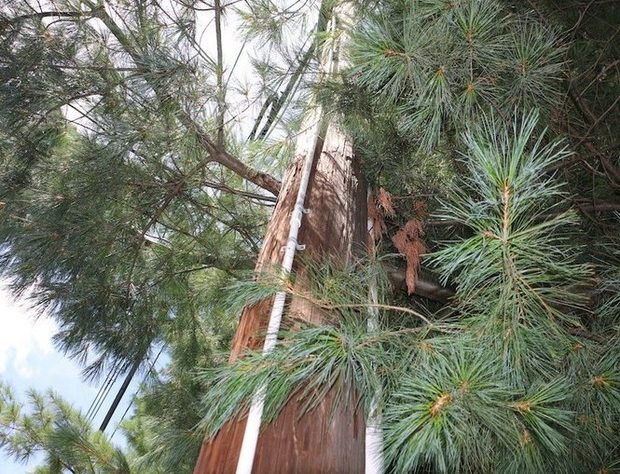
Council members decided to move forward with the settlement despite multiple urgings from residents to not agree to it and to continue fighting the litigation.
Mahwah officials agreed Tuesday night to settle with an Orthodox Jewish group and two New York residents who sued the township after it said their religious boundaries could not be installed on utility poles.
The Bergen Rockland Eruv Association filed a federal lawsuit in August after a religious group was instructed to remove “lechis” — or white PVC piping attached to utility poles — that would form an eruv, or a symbolic religious boundary.
An eruv allows Orthodox Jewish persons to carry out everyday activities outside of the home on the Jewish Sabbath that are otherwise forbidden in public, such as carrying keys or pushing a stroller.
The town claimed at the time that the “lechis” violated a zoning law that banned signs from utility poles.
Council members Tuesday decided to move forward with the settlement despite multiple urgings from residents to not agree to it and to continue fighting the litigation.
The council agreed to the settlement, if the group is willing to accept a modification the council requested, the town’s attorney, Brian Chewcaskie, said at the videotaped meeting on Tuesday. The settlement details were not immediately available.
The town, over its stance on the eruv and other issues, was put on blast by the State Attorney General’s Office in October last year when the state filed a scathing complaint against them.
The state, under then-Attorney General Christopher S. Porrino, cited an ordinance the town considered (but never passed) that would have expanded what was banned on utility poles — effectively disallowing an eruv, the state claimed — and a town rule that was put in place to stop non-New Jersey residents from using its parks, as tactics to keep out Orthodox Jewish people who were coming to the town from New York.
Porrino at the time likened the “hateful” conduct of Mahwah officials to “white flight” suburbanites who tried to keep out black people from their neighborhoods in the 1950s.
“To think that there are local governments here in New Jersey, in 2017, making laws on the basis of some archaic, fear-driven and discriminatory mindset, is deeply disappointing and shocking to many, but it is exactly what we are alleging in this case,” Porrino said in a statement at the time. “Of course, in this case we allege the target of the small-minded bias is not African-Americans, but Orthodox Jews. Nonetheless, the hateful message is the same.”
In December, Mahwah reopened its parks to out-of-state visitors and dropped the proposed law about expanding what is banned on utility poles.
There are 22 places in the state, including Tenafly and Paramus, that have an eruv.
Mahwah Council President Robert Hermansen and Mahwah Mayor Bill Laforet did not comment, citing the pending settlement.
A representative from the Bergen Rockland Eruv Association did not immediately return a request for comment.
Sara Jerde may be reached at sjerde@njadvancemedia.com. Follow her on Twitter @SaraJerde.
Have information about this story or something else we should be covering? Tell us: nj.com/tips
http://www.nj.com/bergen/index.ssf/2018/01/mahwah_agrees_to_settle_with_group_over_eruv.html
